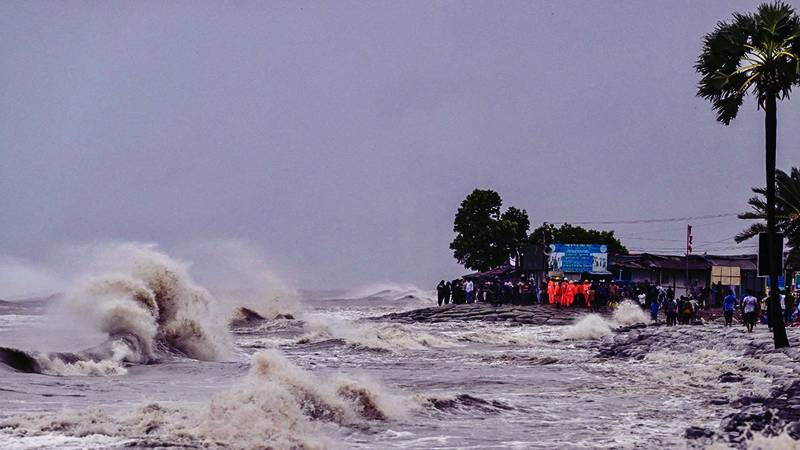
Bangladesh is one of the countries most vulnerable to catastrophes and climate change, according to the Global Climate Risk Index.
According to government scientists, increasing sea levels caused by climate change are drowning Bangladesh's densely populated shoreline at one of the fastest rates in the world, and at least a million people will be forced to evacuate within a generation.
"Few countries experience the far-reaching and diverse effects of climate change as intensely as Bangladesh," said Abdul Hamid, director general of the environment department, in a study released last month.
According to the three-part research, the low-lying South Asian nation is witnessing a sea level rise that is more than 60% higher than the worldwide average.
Based on a quarter-century of satellite data from the US space agency NASA and its Chinese counterpart CNSA, "more than one million people may have to be displaced" by 2050 if local sea levels continue to rise at current rates.
Sea levels are not increasing at the same rate throughout the planet, owing mostly to Earth's uneven gravitational field and differences in ocean dynamics.
According to research leader A.K.M. Saiful Islam, Bangladesh's above-average increases are due to melting ice caps, increased water volumes as oceans warm, and the massive amounts of river water that flow into the Bay of Bengal every monsoon.
He stated that the study sends "a clear message" to policymakers to be prepared for "mitigation and adaptation."
Islam, a member of the UN's IPCC climate change assessment panel, studied the enormous deltas where the Ganges and Brahmaputra rivers meet the sea.
"In recent decades, the sea level rose 3.7 millimeters (0.14 inches) each year globally," Islam stated.
In April, the country of over 170 million people suffered the warmest month and the most prolonged heatwave temperatures in its history.
Last month, a storm that killed at least 17 people and damaged 35,000 dwellings was one of the most powerful and long-lasting ever, according to the government's meteorological department.
This article was originally published on France 24.

